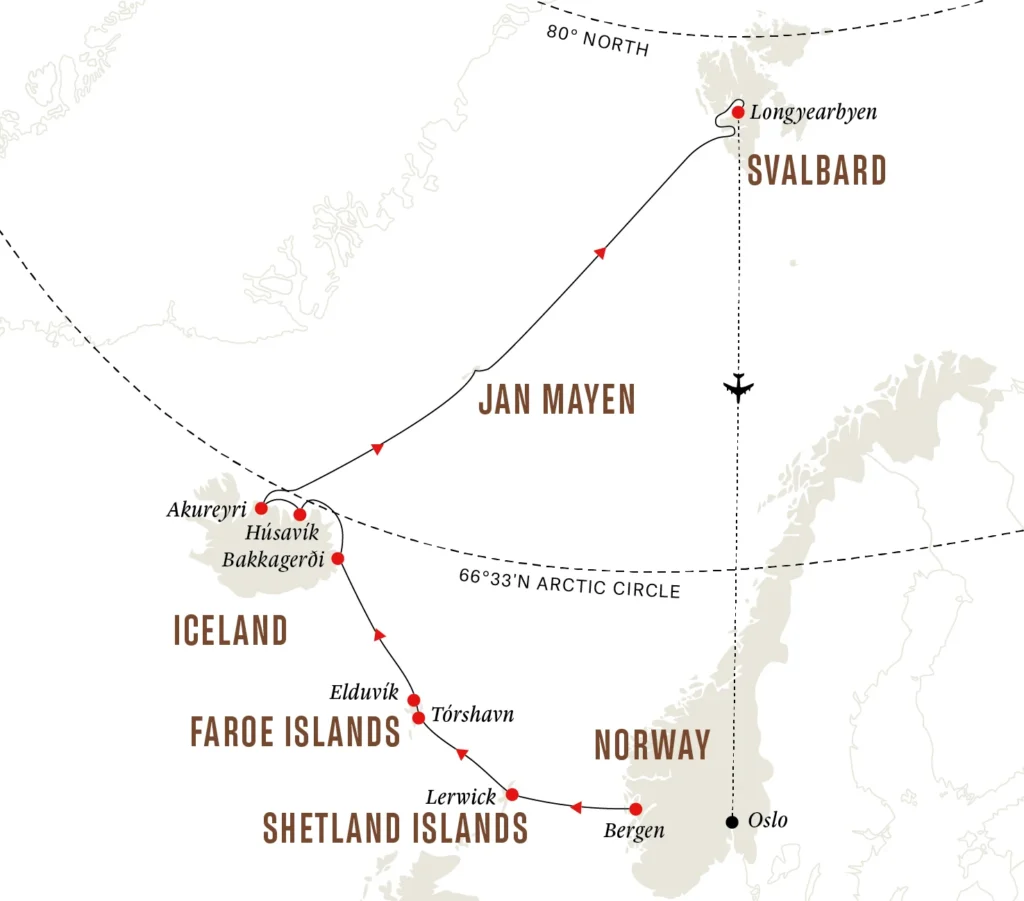Tips for Distant Settings Redux
Terry Odell
 If all goes as planned this time, when you’re reading this, I should be somewhere in the skies between Frankfurt and Oslo. Or Bergen, where our cruise begins. Therefore, I won’t be able to respond to comments, but I trust you’ll play nice and keep things going.
If all goes as planned this time, when you’re reading this, I should be somewhere in the skies between Frankfurt and Oslo. Or Bergen, where our cruise begins. Therefore, I won’t be able to respond to comments, but I trust you’ll play nice and keep things going.
One of my retirement goals is to travel, and even though Antarctica didn’t (and probably never will) happen, I’ve been fortunate enough to see parts of the world I’d never thought I’d be visiting. A lot of this is because our son is a photographer and his “specialty” is leading photo safaris all over the world. This current trip is to Norway and beyond. I’m revisiting a post I did some time ago, with my tips for writing about distant settings, based on a trip to the British Isles.
When the Hubster and I decided to celebrate our 50th anniversary with a trip to the British Isles, of course I had “book” in the back of my mind. However, an international setting wouldn’t have worked with any of my existing series, and since I never plot in advance, I decided to enjoy our tour, taking pictures and notes of what we were seeing and doing and just wait and see what might bubble to the surface.
When we got home, I decided I’d write a short and sweet romance. Write it quickly, understanding that it’s not my true “brand” but that I had to publish something to justify writing off at least part of the trip.
Well, I soon discovered I’m not a short and sweet romance author, and mystery elements insisted on working their way into the story. What I ended up with is Heather’s Chase: an International Mystery Romance which is closer to my brand, although it’s a stand alone and still a bit of a one off. Nevertheless, it was an educational experience. Since then, I had another major trip, this one to Croatia, which led to the book Cruising Undercover.
Things I’ve learned about setting a book in real places, especially distant ones.
Less is more. My first drafts went into phenomenal detail about absolutely everything. Airports. Train stations. Hotels. Food. All the places we stopped, what we saw on the drives. Given we were traveling for well over two weeks, that would have been a LONG book. A sense of place is good. Overwhelming readers is not. I had to keep reminding myself to make sure everything related to the plot and characters. I wasn’t writing a travelogue.
Stay true to time. Readers familiar with the area will know that you can’t get from A to B in two hours, or that when you’ve had your characters on their bus for five hours, it’s really a twenty-minute drive.
You’ll always miss something. Unless you’ve got your plot mapped out before your trip, once you start writing, you’ll have a scene to write and—lo and behold—you missed taking a picture, or didn’t take the right notes. I spent a LOT of time on the internet rechecking facts, looking at maps, and refamiliarizing myself with some of the attractions we visited. If I couldn’t find exactly what I needed, I reminded myself I was writing fiction—another reason not to name real places. On the occasions where my characters were eating in real, named places, I made sure I had pictures and menus. Same for attractions.
Don’t make up real stuff. One of the reasons I made this book a stand alone was because our trip didn’t include visits to police departments (although I snapped a picture of a vehicle in Ireland, “just in case”). Also, it would be unrealistic for my American characters to have any access to law enforcement in several different countries.
Be nice. I also opted not to name the specific hotels or restaurants (mostly). For one thing, it gave me the freedom to change the décor, layout, amenities, or the restaurant menus. And, if something “bad” happened, I wasn’t going to incur the wrath of those establishments.
It’s about flavor. Although my characters didn’t visit Northern Ireland, I did include a character from the same town we’d visited when we stayed with my daughter. I made sure she vetted all his dialogue. For example, people in Northern Ireland use the word “wee” as a meaningless adjective. I was asked for my wee credit card, given a wee receipt, offered a wee bag for my purchases. My British critique partner was very helpful with vocabulary as well.
All in all, I had a great time ‘revisiting’ my trip to the British Isles while I was writing the book, and being able to incorporate my experiences into Heather’s Chase. I did a little better with the Croatia trip, although there were lapses in my note-taking. At least, since it was a photography trip, I had plenty of pictures to nudge my memories.
Any tips to share, TKZers?
 And a little BSP. I’m going to be teaching some writing craft classes via Zoom, hosted by my editor.
And a little BSP. I’m going to be teaching some writing craft classes via Zoom, hosted by my editor.
12 Steps to Intimacy on June 17th
Creating Armchair Adventures on July 15th
Into the Heads of Your Characters, on July 29th.
The links will provide more details.
Please spread the word. Friends, writing groups, libraries … wherever you think there might be people interested in learning more about the craft.
 Available Now
Available Now
Deadly Relations.
Nothing Ever Happens in Mapleton … Until it Does
Gordon Hepler, Mapleton, Colorado’s Police Chief, is called away from a quiet Sunday with his wife to an emergency situation at the home he’s planning to sell. A man has chained himself to the front porch, threatening to set off an explosive.
 Terry Odell is an award-winning author of Mystery and Romantic Suspense, although she prefers to think of them all as “Mysteries with Relationships.”
Terry Odell is an award-winning author of Mystery and Romantic Suspense, although she prefers to think of them all as “Mysteries with Relationships.”

I hope you have a great trip! And I still don’t buy your answer of why you couldn’t sneak me into your suitcase…
Safe travels, Terry. Bring back some great pictures.
Wishing you a fabulous trip, Terry. I”ll be waiting for the book coming from the Faroe and Shetland Islands. Characters stuck on isolated islands is a great situation for mystery and intrigue.
Even though I take detailed notes and lots of photos of unfamiliar locations, my darn characters keep wanting to go into the one building I didn’t tour or the one dark stairwell I didn’t go down. Thank goodness fiction allows some latitude.
Aren’t we glad we don’t have to pay for luggage to stuff all our ideas into when we travel?
🙂
One of my favorite resources for Settings is the Sun Graph at:
https://www.timeanddate.com/sun/usa/charlottesville
(that’s my location at the end; adjust to suit)
Not only does it give you sunrise and sunset times for every day in the past or present, but also all the twilights. I’m currently big on Twilights.
Bon Voyage!
Excellent, Harald. The Internet is a great resource and saves us yards and yards of time and money.
Safe travels, Terry! Stay away from those deserted islands. (I’m reading Robinson Crusoe now. 🙂
I’ll send your class links to our writing group here. Sounds like a great list of classes.
The Internerd provides tons of information about real cities. For just one example, search on “travel time Rimson’s Corners to Tooleyville” and you’ll get the time by motorcar or aeroplane, and probably the distance in miles and kil-LOM-eters, as well. (Why don’t we talk of kil-LOG-rams, huh?) If you’re lazy, something like “time munich nuremberg” will find both.
“Attractions Francisco” (lazy) will get you a list of major places your MC might go in SFO. “Attractions Swinney Switch” will NOT get you a list of attractions for Swinney Switch, Texas. There AREN’T any. What you’ll get is a list of places to go in Corpus Christi, instead, 48 miles away. But why would you set a story in Swinney Switch?? Why not Paris? (NOT PARIS, TEXAS!) Why not Munich?
And suppose you tell in your book about the delicious meal your MC had at Romeli’s Steak House in Cleveland? And Romeli’s is actually in Kansas City? What’s the worst that can happen? Some fussy reader will write to you from High Dudgeon or Cleveland, incensed that there IS NO Romeli’s there. You can simply blame autocorrect. Besides, your MC should never, never have a delicious meal anywhere. Your MC should encounter an old can of Bon Vivant vichyssoise on the road, or something with more dramatic potential, like being encountered by a shark hoping to make a delicious meal of THEM. And besides, besides, restaurants and other sit-down locations are very limited in action and quickly devolve to the infamous “talking heads.”
Just wing it. Making stuff up is what we do. Put a note in your Foreword that dire necessity made you do it. Nobody reads forewords, but you’re off the hook. (“As you can see, Mr. Fussbudget, I clearly said in the Foreword that my Los Angeles lies in an alternate universe, as do I.”) If you’re still worried, move your story to my “Deres Thorm,” a city of infinite peril. Monsignor Pokska will not come look for you, I promise. And there’s no charge!
When people comment on the accuracy of a description – and you’ve never been there – your research has worked.
An early comment from an actor in a writing group: “You’re right-on. It’s hard to believe you’re not writing this from set.” All made up out of bits and pieces.
For me it helps to channel the character – then I see what would attract HIS attention if he had only a few seconds, and write that flash of thought.
Thanks to all for your comments. I have momentary access to the internet while settling into our cabin on the ship, but it’s slow and spotty. Looking forward to setting sail tonight.